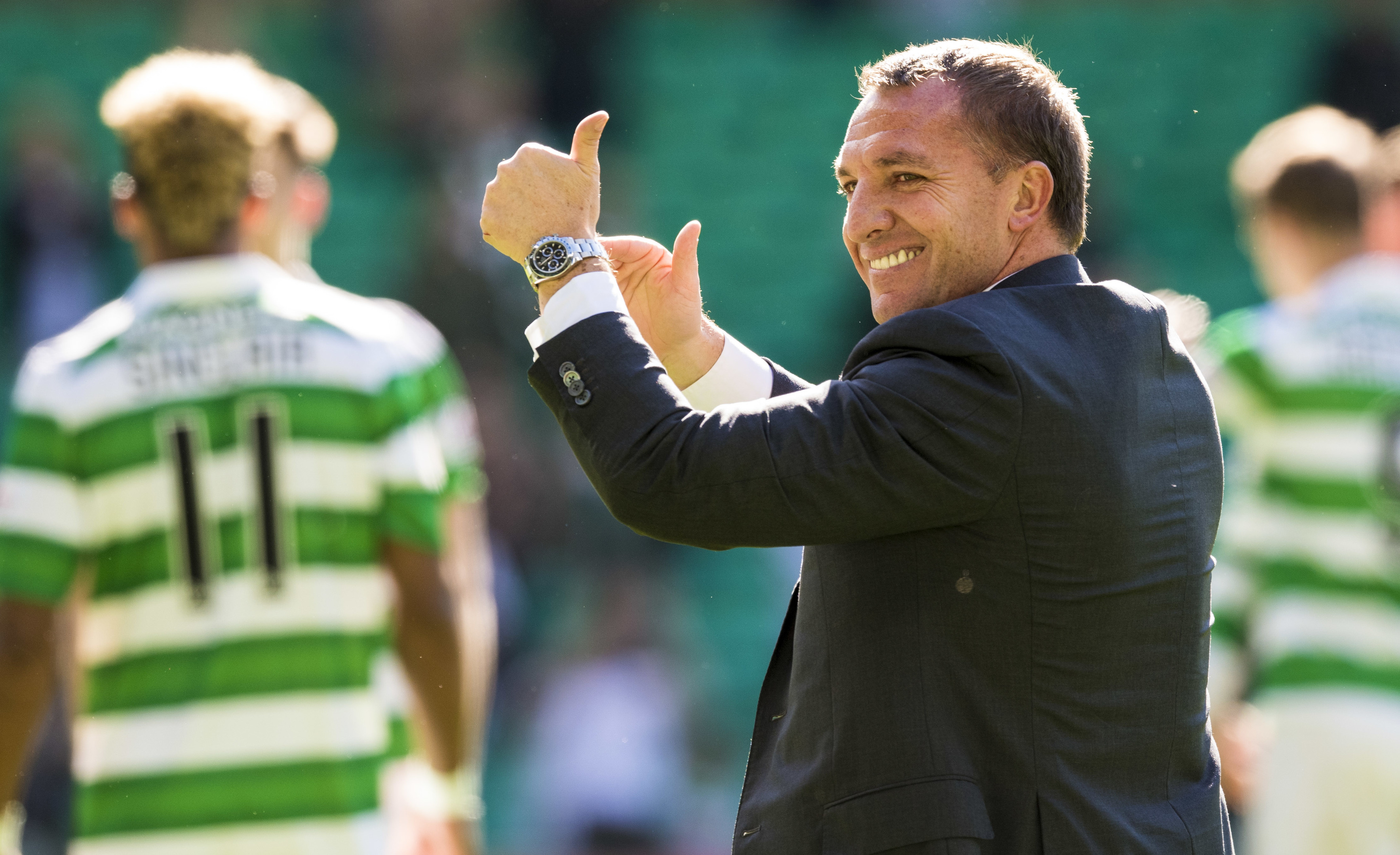
BRENDAN RODGERS is on the brink of delivering the Treble in a stunning first season as Celtic boss.
But you won’t catch the Bhoys gaffer trumpeting his trophy haul.
For Rodgers, real success is not about lifting silverware. It’s about lifting spirits.
The Celtic boss has always taken the psychological side of management seriously.
These days, it is at the forefront of his approach.
From star men to squad members, Rodgers prides himself on knowing all of his players inside out.
He hopes one day to measure his own legacy in human terms, rather than by accolades won.
“When I finish, it won’t be about titles for me. If I get them, great, it’s brilliant,” said the Celtic gaffer.
“I don’t need to be sliding about on my knees winning a cup. It’s fantastic. But if I’m an idiot, it doesn’t matter, does it?
“Being a good person, having peace, being satisfied by how I work. That’s what’s important for me.”
Just as important to the Northern Irishman is the welfare of his players.
During the week, Everton and England star Aaron Lennon’s mental health battle hit the headlines.
Rodgers does not profess to know any more about that than has already been made public, but he did underline his own approach to looking after the players under his stewardship.
He knows the gravity of his obligation, and intends to fulfil it by affording his players the honesty they deserve, first and foremost, as people.
“I always talk about human needs. Before he kicks a ball, can I understand the player?” said Rodgers.
“What are his strengths and what support does he need? It’s absolutely vital in a manager’s job now, the small details.
“You have to know a player’s background and you have to lift burdens.
“It’s fairly common as a manager to sense when a player is maybe a bit down and you have to have a word with him.
“The one thing I’ve learned in football, which I got from a life experience, is that silence is a death sentence in itself.
“The ability to communicate is vital. It’s no use trying to second-guess people.”
Rodgers knows that the communication he prizes is a two-way street.
The improvements he has dragged out of so many of his squad members this season stand as proof.
But the Celtic boss reckons the best illustration of his people-first approach lies in an unlikely star’s story.
“What I try to do is stabilise the emotion of a player. So that they know exactly where they’re at – so they don’t have to second-guess me,” he said.
“Respect is the biggest thing. We’ve got three values hung up in the changing room which we created before we’d even kicked a ball here.
“Respect, unity and excellence. The definitions of those words is on the wall.
“I’m confident that if a player here had a problem, they’d come to me, they’d feel comfortable.
“I’ve had it. I’d hope the players would tell you that as well.
“I never judge them professionally and personally.
“One of the best relationships I had here was with Efe Ambrose – and I never played him.
“But I loved him. He treated me with respect and I made sure he trained with the group every day.
“We worked on what he could do better. He was always clear. He’d come into my office and thank me for the training, for helping him see the game differently.
“What a man. OK, he might not be for me. But he’s a good guy who’s served his time here. He’ll probably go and play somewhere else.
“He might not have been able to do it for me in my starting XI. But he’s got a family at home, a missus who’s just given birth to his child.
“He’s still a human being. When he’s 70 and he looks at me, hopefully he’ll say I did the best for him.”

Enjoy the convenience of having The Sunday Post delivered as a digital ePaper straight to your smartphone, tablet or computer.
Subscribe for only £5.49 a month and enjoy all the benefits of the printed paper as a digital replica.
Subscribe